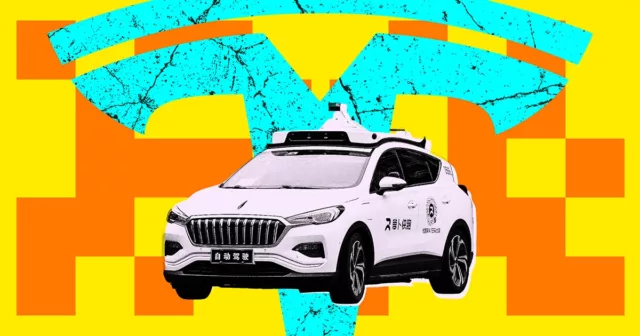
When it comes to self driving vehicles, China went from zero to 60 in the blink of an eye. And every day, they’re moving even faster than the rest of the world — and especially America.
To wit: Baidu, the Beijing company behind China’s largest search engine, has just announced the launch of what it calls the «world’s first autonomous vehicle rental service.»
The program is the result of a partnership with CAR Inc — which is said to be China’s largest car rental company — and it’ll apparently go live «later this year,» according to tech market publication IoT World Today.
While details are scarce, Baidu says the plan is to rent out self-driving cars at reserved times, in order to whisk riders away to «a range of destinations, including cultural landmarks and urban tourist attractions.» Though Chinese transit systems routinely break records for speed and ridership numbers, the hope is that these particular self-driving cars can offer a simple choice for tourists, the elderly, and those with disabilities to get where they’re going.
The reveal of the planned autonomous vehicle rental business coincides with the announcement that Baidu’s Hong Kong robotaxi testing program, which kicked off last November, has been given license to expand. The pilot program was previously restricted to a pre-approved zone of 20 roads around Hong Kong International Airport, though it’s unknown how big the new area of operation will be.
As a mostly-autonomous «special administrative region» of China, the robotaxi expansion in Hong Kong signals a big vote of international confidence in China’s rapidly growing vehicle manufacturing industry. Chinese companies like BYD are currently dominating global sales of electric vehicles, and exports of self driving vehicles are seen as a «next step» for the sector.
The United States, meanwhile, is lagging behind. While China has had over 200 autonomous buses, 1,500 robotaxis, and 1,000 self-driving trucks operating as early as January 2024, US tech monopolies are struggling to even get their vehicles on the pavement, let alone keep pace.
Tesla, for example, has a tidy collection of deadly accidents resulting from flaws in its self-driving software. In late April, CEO Elon Musk admitted that «full self driving isn’t ready» to hit the streets — yet another delay for the autonomous tech that was promised as early as 2016.
This is despite Tesla being given near total freedom to test self-driving software live on public roads — also with deadly consequences — in stark contrast to China’s fast-moving regulatory environment.
Though Musk once called the threat of state oversight «incredibly painful» to Tesla’s roll-out of self-driving cars, the US has only become more friendly to autonomous vehicle producers since he ascended to DOGE Czar. That should be give Tesla all the freedom it needs to prepare its city-wide Robotaxi pilot for launch in Austin, Texas later in June, months after DOGE cut the office responsible for investigating the company’s autonomous fleet.
Yet for some strange reason, Tesla’s shareholders are bracing for an epic disaster.
More on self-driving cars: Tesla Forced to Change Name of «Full Self-Driving» in China, Since Its Cars Can’t Fully Drive Themselves
Share This Article









